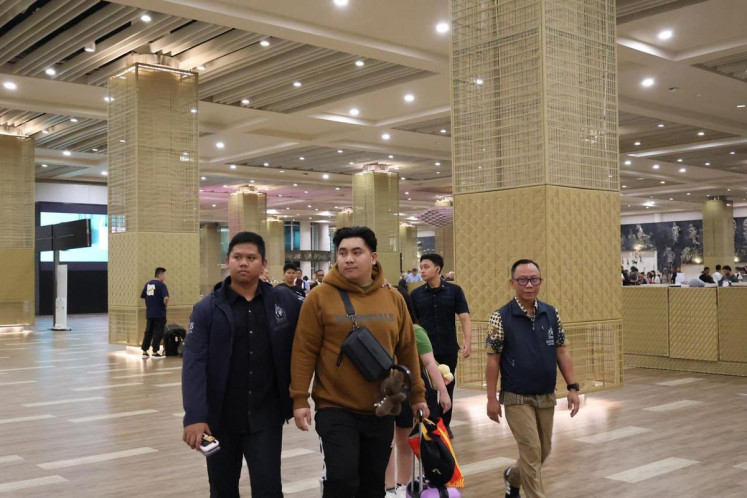Popular Reads
Top Results
Can't find what you're looking for?
View all search resultsPopular Reads
Top Results
Can't find what you're looking for?
View all search resultsPapua conflict uproots thousands while state assistance lags
Prolonged armed conflict in Papua has forced more than 100,000 indigenous people, most of them women and children, to flee their homes. Yet the government’s failure to provide adequate protection has left many displaced families struggling to meet basic needs.
Change text size
Gift Premium Articles
to Anyone
 Papuans who fled their villages due to fighting near the Grasberg gold and copper mine on March 9, 2020, gather at a makeshift shelter in Timika. An Indonesian soldier was killed on March 9 in a shootout with rebels in Papua, prompting more than a thousand civilians to flee fighting near the world's biggest gold mine. (AFP/Sevianto Pakiding)
Papuans who fled their villages due to fighting near the Grasberg gold and copper mine on March 9, 2020, gather at a makeshift shelter in Timika. An Indonesian soldier was killed on March 9 in a shootout with rebels in Papua, prompting more than a thousand civilians to flee fighting near the world's biggest gold mine. (AFP/Sevianto Pakiding)
P
rolonged armed conflict in Papua has forced more than 100,000 indigenous people, most of them women and children, to flee their homes. The government’s failure to provide adequate protection has also left many displaced families struggling to meet basic needs, prompting serious concerns from rights advocates.
Resource-rich Papua has endured clashes between separatists and security forces since the 1970s, but hostilities have surged since 2018, marked by more frequent and deadlier confrontations between the Indonesian Military (TNI) and the West Papua National Liberation Army (TPNPB), the armed wing of the Free Papua Movement (OPM).
While the government has largely focused on responding to the situation with increased military deployments, Emmanuel Gobay, head of the Foundation of the Indonesian Legal Aid Institute’s (YLBHI) Papua desk, said thousands of displaced residents had received little to no state support.
“In the midst of the armed-conflict emergency, churches have become the first responders, providing humanitarian assistance to refugees, many of whom are women and children,” said Emmanuel, who also coordinates the Rumah Solidaritas Papua (Papua Solidarity House) coalition, during a media visit to The Jakarta Post on Tuesday.
The coalition comprises 15 civil society organizations including Amnesty International Indonesia, the Commission for Missing Persons and Victims of Violence (Kontras), the Legal Aid Institute for the Press (LBH Pers) and YLBHI.
“What is increasingly concerning is the government’s continued absence in fulfilling the basic rights of displaced residents. This is clearly a state responsibility, yet their contribution remains largely nonexistent,” Emmanuel said.
Read also: Pregnant woman, unborn baby die after Papua hospitals refuse treatment

















